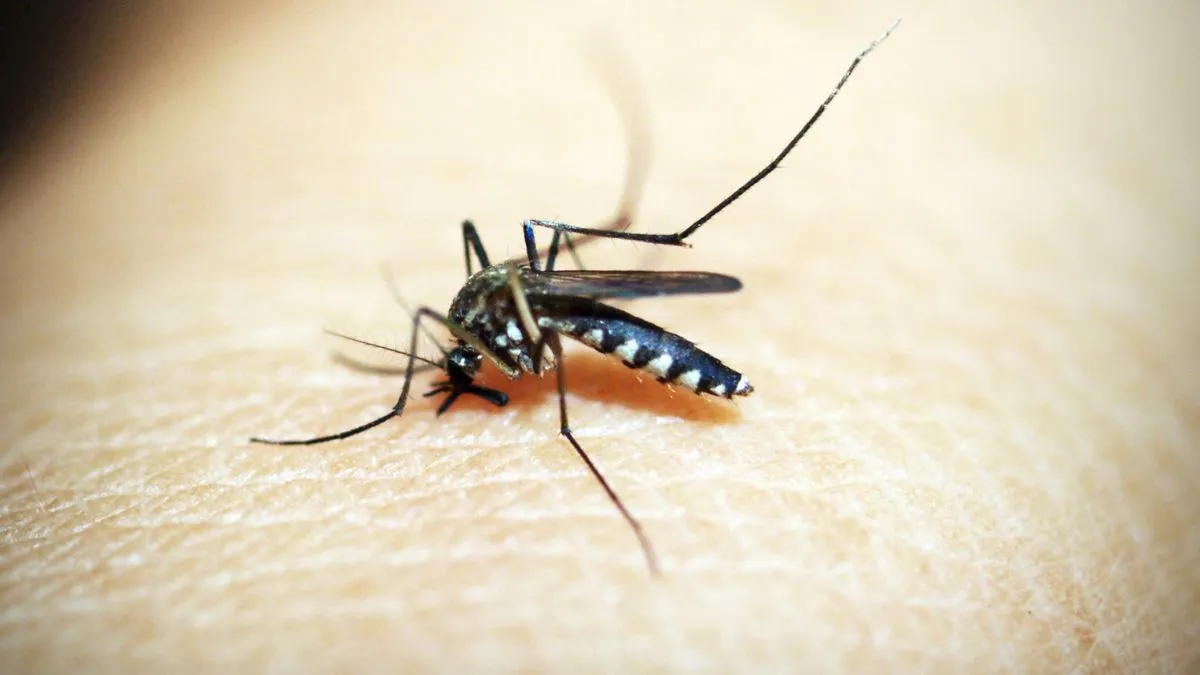- By Iram Hussain
- Sun, 07 Sep 2025 05:18 PM (IST)
- Source:JND
Vector-borne diseases are illnesses transmitted by insects or other carriers (“vectors”), such as mosquitoes, ticks and sandflies. Common examples include dengue, malaria, chikungunya, Japanese encephalitis, yellow fever, Zika virus and Lyme disease. These diseases affect millions worldwide, especially in tropical and subtropical regions and can cause anything from mild fever to life-threatening complications. In a conversation with The Daily Jagran, Dr Tushar Tayal, Consultant, Internal Medicine, CK Birla Hospital, Gurugram shared vaccines and treatments for vector-borne diseases.
Vaccines: Prevention
Not all vector-borne diseases have vaccines, but where they exist, they can be game-changers:
• Japanese Encephalitis (JE) – Widely available in Asia; given to children in endemic areas to prevent brain inflammation caused by the JE virus.
• Yellow Fever – A highly effective single-dose vaccine, required for travel to certain African and South American countries.
• Malaria – New malaria vaccines like RTS,S and R21/Matrix-M have been approved in parts of Africa; they reduce severe malaria risk in children.
• Dengue – Vaccines like Dengvaxia and Qdenga are available in some countries, though their use is often limited to people with prior dengue infection.
• Tick-Borne Encephalitis (TBE) – Used in parts of Europe and Asia where the disease is common.
For many vector-borne diseases (e.g., chikungunya, Zika, leishmaniasis), vaccines are still under development, so prevention relies heavily on controlling the vector and avoiding bites.
ALSO READ: Rise In Dengue, Malaria And Chikungunya! Doctor Shares Tips To Tackle Them
Treatments: Managing The Illness
Treatment depends on the disease and whether it’s caused by a virus, bacteria, or parasite:
• Malaria – Treated with antimalarial drugs like artemisinin-based combination therapy (ACT). Severe cases may require intravenous artesunate in hospitals.
• Dengue & Chikungunya – No specific antiviral; treatment focuses on fluids, fever control and monitoring for warning signs like bleeding or breathing difficulty.
• Zika Virus – Supportive care with rest, hydration and pain relief.
• Lyme Disease – Caused by bacteria from tick bites, treated effectively with antibiotics if diagnosed early.
• Leishmaniasis – Treated with drugs such as amphotericin B or miltefosine, depending on the type and severity.
ALSO READ: How To Stay Safe From Dengue, Malaria And Viral Infections In Monsoon; Know From Doctor
Why Prevention Still Matters Most?
Even with some vaccines and treatments, vector control is crucial. Using mosquito nets, wearing long-sleeved clothing, applying insect repellents, and eliminating stagnant water around homes can drastically cut down disease risk. In short, vaccines are expanding our defences, treatments are improving outcomes but stopping the bite remains our most reliable shield against vector-borne diseases.


